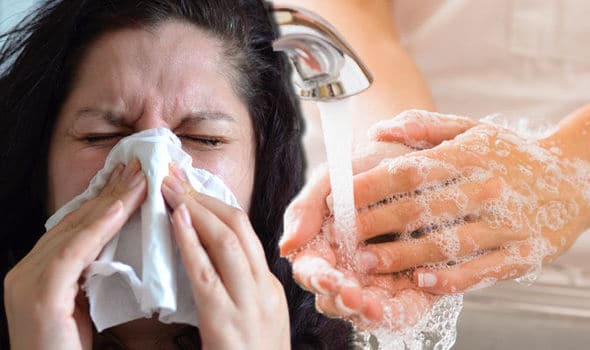 5 Things You Should Know About The Flu
5 Things You Should Know About The Flu

5 Things You Should Know About The Flu
Does Hand Sanitising Really Make A Difference?
Yes, it does! Washing your hands thoroughly with soap and water should be enough to keep the influenza virus from spreading. If you can't, an alcohol-based sanitiser with at least 60% alcohol content should do the trick.
Here's how you should wash your hands:
- Wet your hands thoroughly with clean running water.
- Get some soap and work up a generous lather by rubbing your hands together. Ensure the lather reaches under your nails, between your fingers and on the back of your hands. Do this for about 20 seconds.
- Rinse using clean, running water, then dry using a towel or a napkin.
For further information, Corporate Care recommends visiting Hand Hygiene Australia.
Why Do I Need To Stay At Home When I'm Sick With The Flu?
Here are 5 good reasons why.
- You Won't Make Your Colleagues Sick. Going to work increases the risk of spreading the flu, lowering overall productivity and increasing absenteeism. It only takes a sneeze or a cough within one meter to start passing the flu virus, which isn't much if you consider people working side by side in the workplace environment.
- You Won't Spread The Illness. You risk contracting workplace colleagues, clients, and even people you share public transport with.
- You Can Recover Properly. Rest is an important part of recovering from an illness. You'll know you're ready to go out when you're fever-free for at least 24 hours. Analgesics can mask the flu symptoms, but that shouldn't mean you're well enough to return to work.
- You're Only Wasting Time. A sick individual is an unproductive individual. Workers' productivity is reduced whenever they're sick with the flu, similar to working intoxicated with alcohol. More often than not, you'll be prone to making mistakes.
- You Minimise Business Disruption. Remember, healthy workers are happy workers, and happy workers equal excellent productivity.
How should one Sneeze?
The best way to sneeze and prevent viruses from spreading is to cover your nose and mouth with thick tissue. You should direct the sneeze to your elbow if a tissue is unavailable.
Here's a quick list of do's and don'ts regarding sneezing and the flu.
- DO wash your hands often.
- DON'T go out and stay indoors.
- DON'T use your hands when you sneeze.
Are Handkerchiefs Really Infection Magnets?
Hankies are useful, and they lower the carbon footprint instead of using tissue.
According to the Sydney Morning Herald, Australians consume around 273,000 tonnes of tissue products (including toilet paper) yearly.
Hankie Vs tissue is up for debate. Dr Martyn Kirk, an epidemiologist at Australian National University, said that hankies are all that bad when interviewed by ABC Hobart back in September 2016.
Breathing In Droplets Of A Sick Person Versus Getting The Flu On A Hard Surface - Which Is Worse?
According to the Immunisation Coalition, many experts believe that the primary transmission of the flu is when an infected person sneezes or coughs, passing droplets from one person to another through the mouth or nose. The secondary method of transmission is when a person touches an object or surface with the flu virus and then touches his mouth or nose.
There are many ways how you can stop this.
-
- People who are sick should stay at home to rest and recover.
- Regular hand-washing using soap and water eliminates the germs and lessens the risk of infection.
- Use a hand sanitiser that's 60% alcohol.
- Don't share eating utensils, dishes and linens with those who are sick. Wash utensils and dishes using soap and water or a dishwasher before letting someone else use them.
- Clean and disinfect surfaces that come in constant contact with hands, i.e., doorknobs, toilets and tables, more so if there's a sick person at the office, school or home.
- Behind the Syringe
- Flu Insights

Introducing Aitor Aspiazu, your go-to flu expert and a Registered Nurse accredited by AHPRA (NMW0001159845). Boasting over two decades of experience in healthcare, Aitor has navigated everything from Emergency Departments to Corporate Wellness Programs—and yes, he’s even battled the flu himself. As the Founder and Lead Nurse Consultant at Corporate Care, he’s the driving force behind workplace health and well-being. No longer in scrubs, he’s now at the forefront of healthcare innovation, leveraging Artificial Intelligence and automation to revolutionise workplace health and well-being. As the Founder and Lead Nurse Consultant at Corporate Care, he’s the visionary behind cutting-edge flu vaccination programs that keep businesses running smoothly. Off-duty, he’s a proud dad and a Padel addict who represented Australia in the World Padel Championship. Trust Aitor; he’s got your back when it comes to flu prevention and modern healthcare solutions.